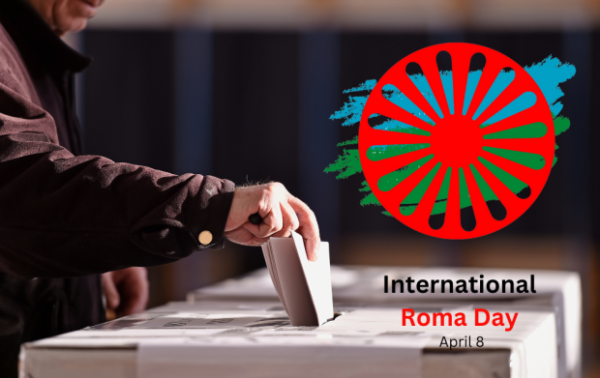Enabling full political participation is vital to improve the situation of Roma and Sinti, says head of international human rights office ODIHR
WARSAW, 8 April 2024 – With the political participation of Roma and Sinti remaining marginal in many places and elections taking place in almost half the countries of the OSCE area this year, it is more important than ever that Roma and Sinti are empowered to participate and thereby help shape their societies for the better, the OSCE Office for Democratic Institutions and Human Rights (ODIHR) said on International Roma Day.
“In this year full of elections, Roma and Sinti across the OSCE area must have equal opportunities to participate both as voters and as candidates,” said ODIHR Director Matteo Mecacci. “Increasing public and political participation is critical to achieving meaningful social inclusion and empowerment for Roma and Sinti communities. By fostering genuine dialogue and partnerships, societies can move closer to realizing diversity’s full potential and ensuring the rights and dignity of every individual.”
Roma and Sinti remain under-represented in all areas of political life. Governments need to work more closely with Roma and Sinti communities and civil society to combat anti-Roma rhetoric, build narratives inclusive of democratic values and tolerance, establish voter education programmes, assist in overcoming difficulties Roma voters may have such as those arising from a lack of ID documents or the fact they are not included in voter registers, and support the participation of Roma and Sinti as candidates in both national and local elections.
In 2023, two decades after ODIHR began assisting countries across the OSCE in improving the lives of Roma and Sinti and working towards societies that promote the diversity of our nations, the Office published its five-yearly report to assess efforts made by OSCE states in ensuring equal opportunities for Roma and Sinti people in all areas of life.
While some visible progress has been made, especially in enhancing public participation, much remains unchanged. Some aspects have also worsened, as populist rhetoric and the increase in racism and intolerance in many places continue to hinder the participation of Roma and Sinti, particularly that of women and youth. Worryingly, ODIHR has noted not only that mainstream political parties are now using discriminatory language previously found only on the extremes, but that this anti-Roma rhetoric is increasingly becoming normalized.
International Roma Day is a yearly celebration of the contributions of Roma to our societies. It was established in 1990 after the 4th World Romani Congress, and is observed every year on 8 April. All OSCE states have recognized “the particular difficulties faced by Roma and Sinti and the need to undertake effective measures in order to achieve full equality of opportunity.” ODIHR works to increase Roma inclusion by providing much-needed space for dialogue between Roma civil society and governments across the OSCE region, helping to move towards more inclusive societies.
